When the Motion Picture Association of America gave the soon-to-be-released film 3 Generations an 'R' rating--a movie about a trans teen named Ray who wants to undergo hormone replacement therapy--social activist and trans student Blair Durkee started a Change.org petition calling on the MPAA to change it to PG-13.
Related | Premiere: KT Tunstall Shares 'Fit In' From the Film 3 Generations
According to Blair and her partners at GLAAD, all that differentiated the film from other PG-13 films was a few instances of strong language--no graphic violence, no drug use, no nudity.
Recalling an adolescence that didn't include images of trans people in the media, Blair saw great harm in preventing more than 150,000 trans youth from seeing a film that could give offer them hope and change their lives. Others agreed, and in a matter of days, more than 34,000 others joined her cause, which soon led to a campaign victory.
OUT caught up with Blair to chat about 3 Generations and the issues she faces as a trans woman.
OUT: How does it feel to know your petition helped move the MPAA to change the rating of 3 Generations?
Blair Durkee: It's an amazing and humbling experience. I feel fortunate more than anything. It was the combined effort of our 35,000 supporters, along with the advocacy of GLAAD and The Weinstein Co. that made this possible. And for me to be just a small part of that change is a privilege. Together, we made one small but tangible step toward a better future for trans youth. It might not change the world overnight, but I have no doubt in my mind that many young people will watch this movie and see themselves for the first time. And that will set their lives on an entirely new course--one of authenticity and truth. Nothing could make me happier.
Upon graduating from college, you didn't know you were trans. Will you say more about the journey that led you to who you are today?
I grew up in an extremely sheltered environment. I had no exposure to trans role models or even the concept of being transgender. I was taught that being LGBT was a sin. And perhaps worst of all, I was raised with very strict and heavily enforced gender roles. All these things caused me to remain in the dark for many years. I had the feelings of what I now know as "gender dysphoria," but I didn't--couldn't--understand them at the time. It wasn't until I gained some personal independence that I had a chance to learn about being transgender and to explore my identity. Beyond seeing and learning about transgender people, my journey was greatly impacted by the concepts of self-worth and acceptance. My inability to understand or articulate my feelings was only part of the problem. The other factors were my internalized shame and fear of not being accepted. I needed to experience the feeling of acceptance first-hand, to meet those who would encourage me to live authentically rather than punish and guilt me for it. Once I surrounded myself with friends who loved me for me (rather than my capacity to conform to some preordained role), I had the self-assurance to come out and live my truth.
As a graduate student in a state that isn't known for its progressive politics, how do you navigate being in spaces that may not be as fully inclusive of transgender people?
I feel very fortunate to be surrounded with accepting friends and peers. It's certainly true that my state and region are generally hostile to people like me, but daily, personal interactions have a much greater impact on my life than the back-and-forth of politics. And while I don't actively put myself in harmful situations, I have made a deliberate choice to not hide my identity--to be out--for a couple of reasons. One is that trying to hide my identity sounds exhausting, and I'd rather not have to carry that burden. The other is that I believe I can do more good when I am out and visible to the world. My journey as a trans person has not been an easy one, and it continues to be a struggle in many ways. I want the next generation of trans people to have an easier time than I did. And if I can contribute to that in any way, I will happily do so.
Are you ever positively surprised by people's responses if or when they find out you are trans?
Yes and no. The vast majority of people I meet in person have a positive or neutral reaction to me being trans. And yet I am not often positively surprised because I don't expect anything different. I believe that people generally rise to the expectations that are set for them. I choose to act like being trans is normal and unremarkable because it is (or should be) normal and unremarkable. If someone is going to have a negative reaction, I want them to feel like the odd person out. Because empathy, open-mindedness, and compassion are universal principles. Anyone can practice them, regardless of how much they know or don't know about transgender people.
What advice or encouragement do you have for those who are still struggling with their identities?
There are so many pressures from society--big and small--to conform to cisgender, heterosexual norms. Coming out is a significant, permanent break from those societal expectations and consequently, it can seem like a major commitment that leaves no room for doubt. And that's a major stickler--the doubt. Our society does a tremendous job of causing LGBT people to doubt their own thoughts and emotions. Its power is astounding. It can haunt people and keep them in the closet for years, even decades. I think a lot about what can be done to free LGBT people--and LGBT youth in particular--from this crippling doubt. Short of radically changing our societal norms, I think we should encourage people to treat their doubts and fears as an adversity but not a barrier--to not let it paralyze them into complete inaction. Sometimes the only way to dispel our doubts is to move past them. We could spend our whole lives second-guessing ourselves, but that's no real way to live. My advice is to take a few steps on faith--and you will likely find yourself pleasantly surprised.
What do you think are the major challenges the trans community faces internally?
A major, ongoing challenge for the trans community is access to health care and legal services. It is still very difficult in many areas to find a doctor that can administer transition-related care or a therapist who can work with trans clients. And even then, cost can be a major issue. The same is true for legal issues, such as name and gender changes on identification documents. Many states in the US make it very difficult to procure an updated ID, and the cost of legal representation can be very expensive as well.
I believe that the alliance between the trans community and the LGB community is a positive and beneficial one. For starters, there is significant overlap between the groups--a much greater percentage of trans people are LGB than the cisgender population. And of course, both groups face similar challenges of prejudice and discrimination. But there can also be friction on occasion. Some LGB people don't understand trans issues or feel like it's their responsibility to be allies to the trans community. But I have found this is increasingly not the case. The LGBT community we have created together is something special, and personally, I enjoy the sense of camaraderie, solidarity, and pride that we share.
What are your thoughts on the current administration and its approach to issues affecting LGBTQ people?
It's important to understand that good intentions aren't sufficient for being a good ally to the trans community. How you fight for something is just as important as what you fight for. Many people who identify as trans allies were also, for instance, participants in disinformation campaign that allowed Trump to rise to power. They didn't intend to harm trans people in the process, but that was the clear result. I hear a lot of cisgender allies telling the trans community what they think is good for us, rather than listening to what we are saying we need. To be clear, we don't need grandiose, idealistic political fantasies. We are in immediate danger from the multitudes of Americans who wish to strip us of our rights. Too many allies got caught up in the former, and now trans people are left to suffer the latter.
My advice would be to listen to the trans community. Understand that certain well-intentioned actions may be counterproductive. And then get involved in positive ways that matter. Marching and protesting can be a welcome sign of solidarity, but it doesn't often improve our lives. Vote and encourage others to vote for pro-LGBT candidates--not only in national elections but also in state and local elections. Support trans-friendly charities and non-profits by donating or volunteering. Buy a subscription to a news outlet that covers trans issues and refutes the disinformation that allows anti-trans politicians to get elected. Join efforts and sign petitions that are seeking to create real, positive change. All these things can make a difference. And we're going to need as many active and involved allies as we can get over these next few years.
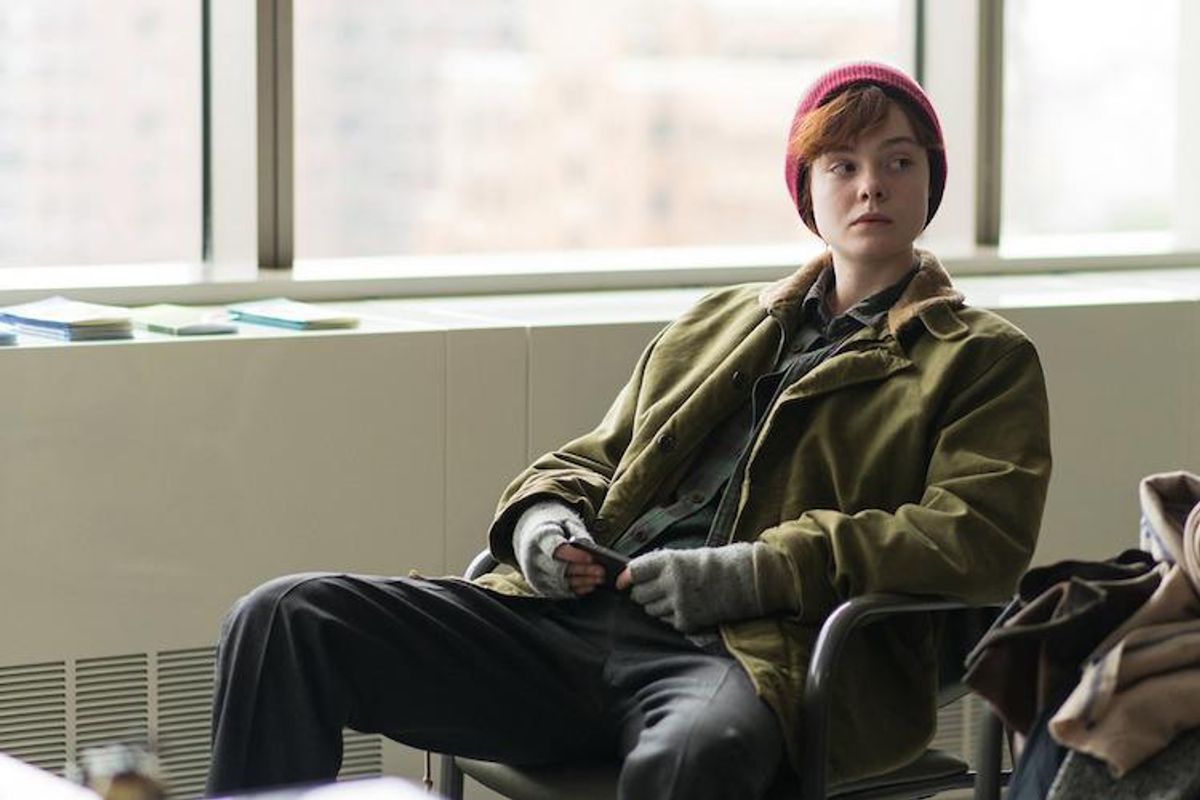








































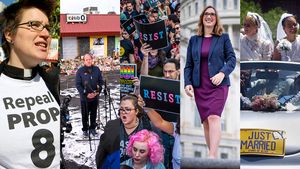








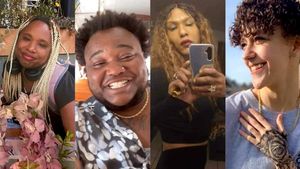














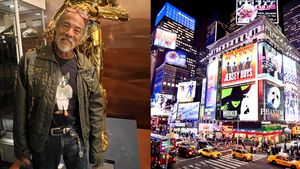










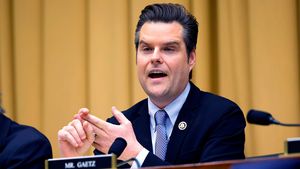

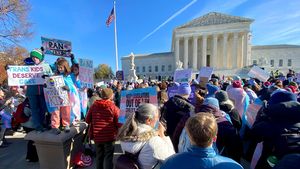

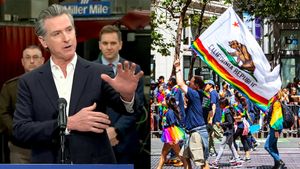

Sexy MAGA: Viral post saying Republicans 'have two daddies now' gets a rise from the right